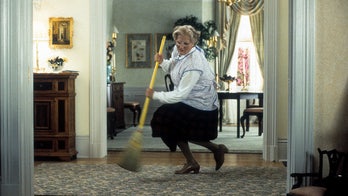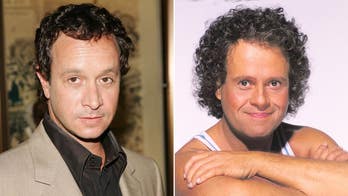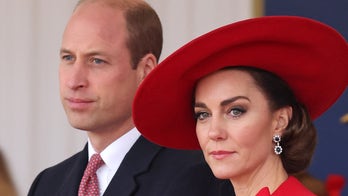The Dalian Wanda Group has sealed a deal to buy Dick Clark Productions for an eye-popping $1 billion.
The acquisition, which had been expected, marks yet another aggressive move into Hollywood for the Chinese real estate and entertainment conglomerate. Dick Clark Productions will Wanda a presence in the world of glitzy live events, such as the Golden Globe Awards, and the infrastructure for unscripted TV production.
Wanda said the deal is the company’s first move in TV. “It’s a big step forward in expanding Wanda’s map in the entertainment industry,” the company said.
Wanda said the management team at Dick Clark Productions, lead by CEO Allen Shapiro, will remain intact and that executives have signed “long term operation target agreement” with Wanda.
More From Variety
“DCP has abundant cash flow with a high level of operation stability and steady profit growth. As broadcast right fees for art and sports programs increase in the U.S., DCP will further improve its performance and company values,” Wanda said. “Obtaining top television production rights brings about complementary and coordinated development for Wanda’s current focuses on the film, tourism, and sports industries.”
After the acquisition is completed, DCP’s management will remain in its entirety. Wanda has signed a long-term operation target agreement with the management. DCP’s revenue and profit will show strong increases year by year.
Wanda already owns AMC Theaters and Legendary Entertainment, and is planning to acquire Carmike Cinemas, which would create the world’s largest exhibitor.
Guggenheim Partners bought Dick Clark Productions in 2012 for $370 million — a price that at the time many thought was inflated. More recently, the company was spun off from Guggenheim to Eldridge Industries, which is owned by former Guggenheim exec Todd Boehly.
In 2007, DCP was acquired by Dan Snyder’s RedZone Capital Management for about $175 million.
DCP is best known for producing the Globes, the American Music Awards, the Academy of Country Music Awards and several other awards franchises, as well as ABC’s perennial “Dick Clark’s Rockin’ New Year’s Eve” special. It also produces reality series such as Fox’s “So You Think You Can Dance?” DCP recently struck a deal with ABC to produce “For the Record Live” specials involving soundtracks to well-known films.
But the company in recent years has struggled to produce successful new programs. Industry observers were shocked when word surfaced last month that Wanda was considering such a high valuation for the company. One source who looked at the company when it was on the block in 2012 called the estimated $1 billion price tag “nonsensical” given the lack of new assets added in the past four years. Another industry source familiar with the latest sale process said the highest offer for DCP outside of Wanda was around $600 million. “Unreal” was how the source described the Wanda deal.
When DCP was sold in 2012, it had annual earnings of $36 million, before interest, depreciation, amortization and taxes, according to a financier privy to the terms. Earnings have increased to as much as $60 million-$70 million annually, on the strength of new contracts with broadcasters that air the company’s shows, according to the source, who declined to be named.
Wanda and DCP may be betting on the moneymaking potential of the company’s most high-profile production, the Golden Globe Awards, growing significantly when the contract comes up for renewal in 2018. NBC at present pays an estimated $21.5 million a year for the awards show, half of which goes to DCP.
As the major networks put more emphasis on the value of can’t-miss live events, the annual Globes license fee could rise if DCP and the Hollywood Foreign Press Association can whip up a bidding war among networks. DCP and HFPA waged a four-year legal war over control of the TV rights to the Globes that began in 2010. They reached a settlement in 2014 that is believed to ensure DCP remains on board beyond the 2018 NBC contract expiration for at least another 10 years, although the license fee split will not be as generous toward DCP in the future.
DCP also owns the archive of its namesake’s “American Bandstand” music series that ran with Clark as host from 1956 through 1989. But the clip licensing from the show is complicated and costly because of the need to obtain music rights.






